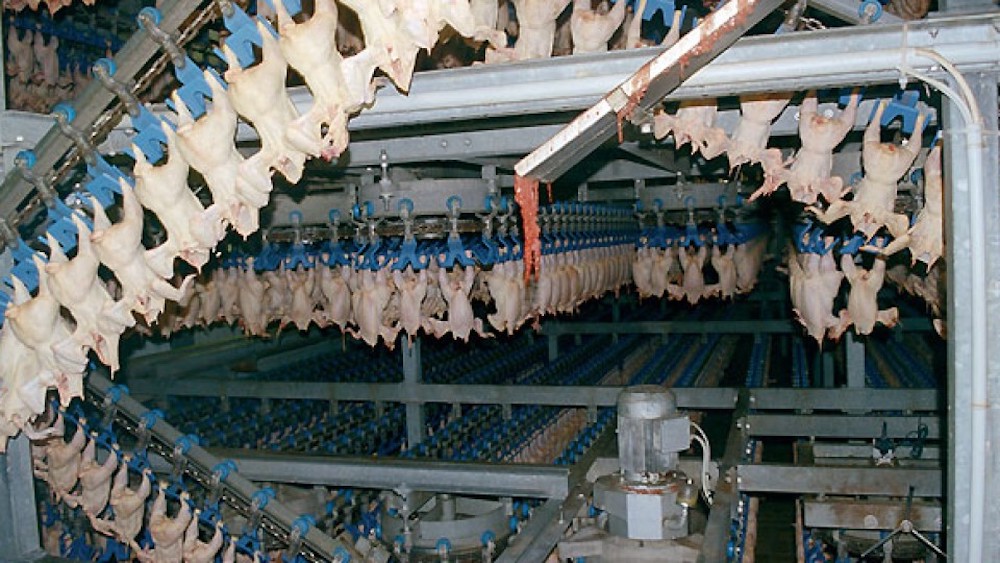By Chlotrudis Independent Film Society
Rating: 3.5 cats
Director: Erwin Wagenhofer

Country: austria
Year: 2005
Running time: 96
IMDB: http://www.imdb.com/title/tt0478324/combined
Bruce says: “WE FEED THE FORLD is a call to arms encouraging people to rail against the globalization of agriculture that is destroying the small farming industry. 52% of the world’s gross product is now in the hands of just 500 worldwide corporations.
“Filmmaker Wagenhofer uses several wonderful examples to illustrate his point. WE FEED THE WORLD begin with gorgeous shots of green wheat fields. Next we see the beige crop being harvested and sent through different stages of being transported and processed. Finally we see thousands of loaves of bread being sent to the dump in Vienna, enough to feed the people of Graz, the second largest city in Austria, each day. Meanwhile around the world 100,000 people – largely children – are dying from starvation or malnutrition every single day. What is wrong with this picture?
“In Brazil the rainforest is being sold off at one cent per acre. The rainforest is being cleared for planting soya in spite of the fact that the soil is entirely wrong for the crop and all artificial nutrients must be used to make up for what the soil lacks; Brazil, now the largest soya producer in the world, exports the soya to Europe, China and Japan. In Europe it is used to fatten livestock quickly for market. People in Northeastern Brazil are now starving because draughts, which may have been caused by clearing the rainforests, have destroyed their crops.
“In once what was an arid wasteland 25,000 hectares of greenhouses are now home to a booming vegetable industry in Almeria, Spain. The vegetables are exported to Senegal where they sell for 1/3 the price of those raised by the local Senegalese farmers. The Senegalese are forced to take jobs working as laborers for low wages in the very greenhouses that have forced them out of business at home.
“Romania, after France the largest agricultural country in Europe still has farmers who plant and harvest their own crops using hose drawn carts and rudimentary tools such as giant scythes. Pioneer (‘We Feed the World’ is their slogan), the world’s number one genetically modified hybrid seed producer, is making inroads into this country. Hybrids are cheap seed but they cannot reproduce after two generations so the farmer is stuck with them once he puts them to use.
“WE FEED THE WORLD also examines the fishing industry in France soon to become extinct. Small boats that go to sea daily to bring back fresh catches will be replaced by large boats which stay at sea for 15-30 days. Chickens in Austria are incubated, hatched, fed, fattened, slaughtered and processed with little human intervention.
“The new hybrid aubergines in Romania have no flavor; soya in Brazil is grown with all artificial ingredients; mass produced chickens have little taste. The CEO of Nestle, the largest food producer in the world and the world’s 27th largest corporation, fells that his social responsibility is to ensure his company has future profits. To those critical of his company’s policies he replies, ‘We have everything we want yet we go about as though we are mourning for something.’ He apparently has no interest in the 36 million people who are dying each year from his policies.
“Nicely filmed, Wagenhofer’s examples are intriguing. The talking heads sometimes lecture to the audience and none, save the self-serving CEO of Nestle, are very interesting. 3.5 cats”
